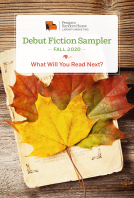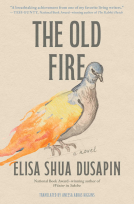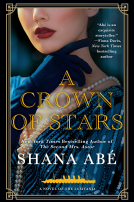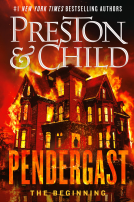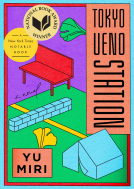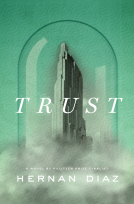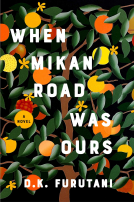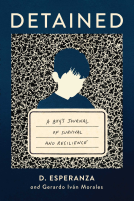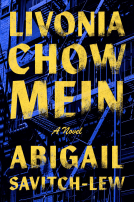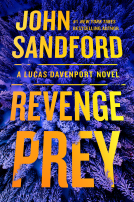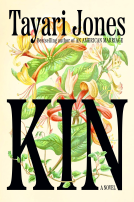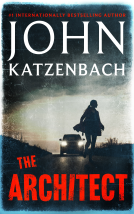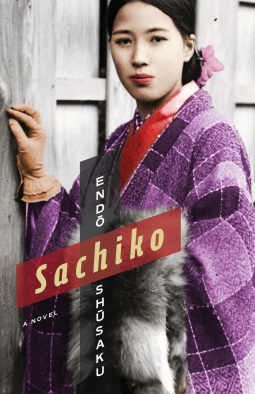
Sachiko
A Novel
by Shūsaku Endō
This title was previously available on NetGalley and is now archived.
Send NetGalley books directly to your Kindle or Kindle app
1
To read on a Kindle or Kindle app, please add kindle@netgalley.com as an approved email address to receive files in your Amazon account. Click here for step-by-step instructions.
2
Also find your Kindle email address within your Amazon account, and enter it here.
Pub Date Aug 18 2020 | Archive Date Nov 11 2020
Talking about this book? Use #Sachiko #NetGalley. More hashtag tips!
Description
In the 1930s, two young Japanese Christians, Sachiko and Shūhei, are free to play with American children in their neighborhood. But life becomes increasingly difficult for them and other Christians after Japan launches wars of aggression. Meanwhile, a Polish Franciscan priest and former missionary in Nagasaki, Father Maximillian Kolbe, is arrested after returning to his homeland. Endō alternates scenes between Nagasaki—where the growing love between Sachiko and Shūhei is imperiled by mounting persecution—and Auschwitz, where the priest has been sent. Shūhei’s dilemma deepens when he faces conscription into the Japanese military, conflicting with the Christian belief that killing is a sin. With the A-bomb attack on Nagasaki looming in the distance, Endō depicts ordinary people trying to live lives of faith in a wartime situation that renders daily life increasingly unbearable. Endō’s compassion for his characters, reflecting their struggles to find and share love for others, makes Sachiko one of his most moving novels.
Advance Praise
"Set during World War II in Nagasaki and Auschwitz, Endō’s novel Sachiko provides a powerful portrait of a woman who pursued a life of faith, hope, and love. This translation highlights Van Gessel's deep compassion and understanding of Japanese history, tradition, and culture. I cannot more highly recommend this outstanding and delicate translation."
-Emi Mase-Hasegawa, J. F. Oberlin University
"An important work of historical fiction that raises profound questions about the moral legitimation and human cost of war, transnational relationships, and the atomic bombing of Nagasaki. "
-Kevin M. Doak, Georgetown University
"Beautifully translated by Van Gessel, the doyen of Endō scholars, Sachiko confirms once again the stature of this prolific author. The parallel stories bring a fresh urgency to Endō’s profound understanding of the conflicting aims of culture and spirituality. "
-J. Thomas Rimer, University of Pittsburgh
Available Editions
| EDITION | Other Format |
| ISBN | 9780231197311 |
| PRICE | $28.00 (USD) |
Links
Average rating from 17 members
Featured Reviews
Sachiko provides an interesting and fact based account of the life of a young person who survived the bombing of Nagasaki. War is a tragedy and many atrocities on both sides occur. It is horrific reading the account of this young woman and the years that followed. She truly was never able to escape the tragedy of her youth experiences. Many will fault the United States for its bombing of Hiroshima and Nagasaki. However, this story is just one side of the tragedy. The U.S. was unfortunately lured into the war with Japan and the Japanese were no easy enemy. Their treatment of U.S. POW's who were also drafted citizens, their own citizens, and the inhumane bombing of Pearl Harbor among others was atrocious. Japan had to be stopped. It is a good read and has its place in a balanced account of the Pacific theater of WWII.
Synopis:
The book tells the story of two childhood friends, Sachiko and Shūhei, who grew up in Nagasaki as a minority: they were raised as Christians. The church they attend is run by a group of Polish priests that is very loving to the community, but constantly spied on by the local police. As the years pass by, everyone's life gets more difficult because of the consequences from the on-going WW2. Relationships, faith and love are all put to test while Japan's situation only gets worse.
Review:
This was my first time reading a book by Shūsaku Endō and, because of that, before starting the book I did some research on his works. Reading about his books set my expectations for Sachiko very high and I was not disappointed. Endō's ability to make me feel exactly the same emotions as the characters is something a book has not made me experience in in years.
The characters have big personalities and well built backgrounds, in a way that their actions are always justified. Shūhei was my favorite and reading about his dilemma concerning the relation between war and Christianity, the silence of the Church and his overall doubt in the religion were heartbreaking. I also loved the parallel drew between Shūhei's feelings and Martin's (the Aushwitz Adjutant) lack of feelings.
The chapters in Aushwitz were also outstanding. The lack of hope, the desperation and the agony were almost palpable. This is one thing I love about historical fiction: we already know some parts of the story, and it is amazing when the author is true to those moments and builds his narrative in a way that will create a feeling of anticipation towards certain moments. Shūsaku Endō did exactly that.
Of couse, I wouldn't have enjoyed this book so much if it wasn't for the incredible and thoughtful translation of Van C. Gessel. He translated the work into a beautiful prose, paying attention to explain his choice of words when necessary.
This was a wonderful, heartbreaking and beautiful book.. I am very thankful to NetGalley and Columbia University Press for gifting me with this e-copy in exchange for an honest review. I will post a review on Instagram on pub date, but i have already recommended it for many people and hope to continue doing so.
 Reviewer 476743
Reviewer 476743
Another wonderful book by Endo Shusaku. I'm not certain when this book came out originally, as the author passed away over twenty years ago. However, the competing storylines between Sachiko, Shuhei, and Father Maximilliam Kolbe (who I didn't know had spent time in Japan) are well told. Even though the reader knows what's coming, it still brings tears to one's eyes.
 Justine T, Reviewer
Justine T, Reviewer
The story is based during the 1930s-1945 Nagasaki Japan. It follows the story of two young Japanese Christians Sachiko and Shuhei. Growing up as Christians in a country that sees your religion as unpatriotic, isn't easy especially when Japan is on the brink of war.
We also get introduced to Father Maximillian Kolbe a Franciscan priest and former Missionary at the start of the book, as he travels from his homeland to Nagasaki. His story takes him back to his home town where he is arrested and taken to Auschwitz.
we see Shuhei struggle with his beliefs with his looming conscription to the Japanese army, being a Christian it is a sin to kill. This was such an insightful and emotional book. There have been so many books written about WWII but I haven not read one that was from the frame of reference of Japan. This is one thing that struck me the most. The author writes about the struggle of day to day life. The constant battle with what is right and wrong. The emotions that the characters feel is palpable. You can feel the emotions leaping out of the page. The characters have been written with so much depth, and I love how there is distinct emotional divide between some of the characters. That it goes from one end of the spectrum to the other. The contrast of Nagasaki to Auschwitz, makes it hard to swallow. There are so many poignant moments in the story.
This truly is a beautiful heartbreaking tale. The translation of the book as been perfect, I can not imagine that there has been any lose of felling that the book wasn't able to get across. I definitely will read Shusaku Endo other books
Sachiko is the tale of two Japanese Christians from Nagasaki, Sachiko and Shuhei, told in the years leading up to and during WWII. Readers are also introduced to several Polish monks in Nagasaki at the beginning of the novel which later provides a path for Endo to write from Father Kolbe’s perspective in Auschwitz.
While I found the beginning of the novel delightful and had high hopes overall, it sadly lost a lot of steam about halfway through. I enjoyed Sachiko’s story from the beginning and the scenes taking place at Auschwitz were quite heavy and emotional, but Shuhei’s story really failed to interest me. I found him unlikable, which is unfortunate considering I felt the narrative shifted to make him the primary character towards the middle of the story. The moderate pacing from the earlier parts of the novel eventually turned to plodding, with a lot of the chapters feeling repetitive. There was quite a lot of focus on the character’s feelings about the war and how they could not reconcile them with Christianity which took up a large chunk of the narrative. Unfortunately, the reader was not meant to feel this but rather told this.
This novel really would have benefited from being trimmed down. While it is still an interesting read, it ends up being bogged down by repetition and mundane details that do not serve to advance the overall plot. While I would certainly be willing to give Shusako Endo another try, I think it will be a while before I pick up another of his novels.
I would recommend this book for anyone who has a vested interest in WWII, particularly from a Japanese perspective.
 Mandy J, Reviewer
Mandy J, Reviewer
Set mainly in Nagasaki between 1930 and 1945, this thought-provoking novel tells the story of two young people coming of age in a difficult time for Japanese Christians. Sachiko and Shuhei grow up as part of a Catholic community and as children are free to play happily with the children of American missionaries and mix with the Polish monks also in the city. But they find their Christian beliefs increasingly coming under scrutiny as war approaches. Can a Japanese Christian also be a loyal subject? Japanese Christians were frequently persecuted and treated with suspicion. Shuhei in particular also wrestles with his Christian beliefs. His faith tells him that killing is wrong. His country wants to send him to kill. As he faces conscription, he has to somehow reconcile his beliefs with his duty to his nation. The Church seems to be unable to offer him either guidance or solace. A second strand of the novel follows a Polish Franciscan priest who leaves his monastery in Nagasaki and returns to Poland where a grim fate awaits him in Auschwitz. We follow his own commitment to his faith. The novel is throughout a meditation on and exploration of Christian beliefs, a subject which Endo has explored before, primarily in his novel Silence, and he was a leading Christian writer (1923-1996) in Japan. I found the novel an interesting read, not least because I knew very little about the Japanese Christian community, but I found the characterisation rather flat and in spite of their harrowing experiences, always felt on the outside looking in rather than relating to and identifying with the protagonists. A novel of ideas rather than character, but none the less enjoyable for that.
 sara a, Reviewer
sara a, Reviewer
It is wonderful to have a translation from one of the classic writers of Japan and this one does not disappoint. It may be a little awkward in how it reads, but if you're an Endo fan, you'll definitely want to read this one.
 Eileen K, Reviewer
Eileen K, Reviewer
Sachiko is a young girl growing up in Japan, learning the definition of love. A polish missionary, Father Maximillian Kolbe, befriends her and, before returning to his homeland and the Nazi concentration camps, he gives her a gift of a holy card displaying the message that there is no greater love than to lay down one’s life for another. She plays with two American brothers whose father works in Japan and one troubled local boy, Shuhei, who rebels daily against authority. As the years pass, the Americans leave and she finds herself daily defending Shuhei and gradually falling in love with him. World war breaks out. Fr. Kolbe is martyred at Auschwitz. The four friends head toward possible destruction: Shuhei, as a Navy pilot, the Americans as enemies, and Sachiko, as a citizen of Nagasaki. The stories of these characters are beautifully told by Endo Shusaku. Through their thoughts God and religion, the morality of war and degrees of love are discussed and debated throughout this work. The ideas stated will remain with this reader for a long time.
 Account D, Reviewer
Account D, Reviewer
i really enjoyed reading this book, the characters were great and I really enjoyed the time period in the novel. It was a beautifully done story.
Thank you to Columbia University Express and NetGalley for the opportunity to read this book and provide an honest review.
The premise of this book immediately piqued my interest as I lived in Japan for a few years and had several friends there who were Christian. The first chapters of this book were particularly insightful as they detailed the arrival of Polish Priest and missionaries, their interaction with the church community, as well as introduced several characters who were parishioners and citizens of Nagasaki. Sachiko, the young girl on whom the story focused in the beginning was a charming character and it was interesting to read about her life as a young girl of the WWII era. The story shifted to focus on her childhood friend, Shuhei, I struggled to stay engaged as I found him a very unlikeable character. As the Polish Priest returns to his country, he is arrested and sent to Auschwitz and that begins second of the parallel story lines Endo Shusaku toggles between throughout the remainder of the book. I found the Auschwitz portrayal raw and emotional and much more engaging than that of Shuhei's struggle to grapple with the conflict of committing violence on his fellow man in a war he didn't want to fight. The pacing of the Shuhei story was slow, repetitive and sometimes tedious. Although I preferred the Auschwitz story, there were characters and situations that were let unresolved and abandoned.
This is the first English translation of Shusaku Endo's 1982 novel Sachiko. Similarly to his most famous work, Silence, Sachiko is a Roman Catholic story that deals with themes prevalent in this strand of Christianity. Though not a Christian by any means, I found parts of the book, especially Sachiko's storyline to be incredibly touching and interesting. Beautifully written and masterfully translated, Sachiko is a must-read for anyone interested in Japanese literature.
Rating 3.5 stars
Mainly set in Nagasaki between 1930s and the dropping of the A bomb and Auschwitz. In Nagasaki we followed Sachiko and Shuhei, two young Japanese Christians, as they grow up. In the case of Shuhei, he goes off to college before being called up to military duty. However Shūhei’s faces the dilemma when he is conscripted into the Japanese air force, as his Christian belief conflicts with the orders to kill. We also get a few chapters following Father Kolbe after he returns to his homeland of Poland. He is arrested and sent to Auschwitz. We then see the effect he has on the other prisoners with his Christian beliefs and also we see the situation from one of the officers at the camp as he processes the people coming in.
It is an interesting story, but somehow even though it is set during trying times for those involved, it seems to lack the emotion of the situation, even when the bomb is dropped on Nagasaki, when we read about the choice Shuhei makes or at Auschwitz; something is missing. At times there are repeated references to a box the Sachiko keeps her letters in and also poems keep getting repeated - bit of a grind at times.
There are footnotes throughout the book explaining the history or culture of Japan, which I found useful.
I received this book from Netgalley in return for a honest review.
Readers who liked this book also liked:
D.K. Furutani
General Fiction (Adult), Historical Fiction, Multicultural Interest
Marie Bostwick
Historical Fiction, Literary Fiction, Women's Fiction
